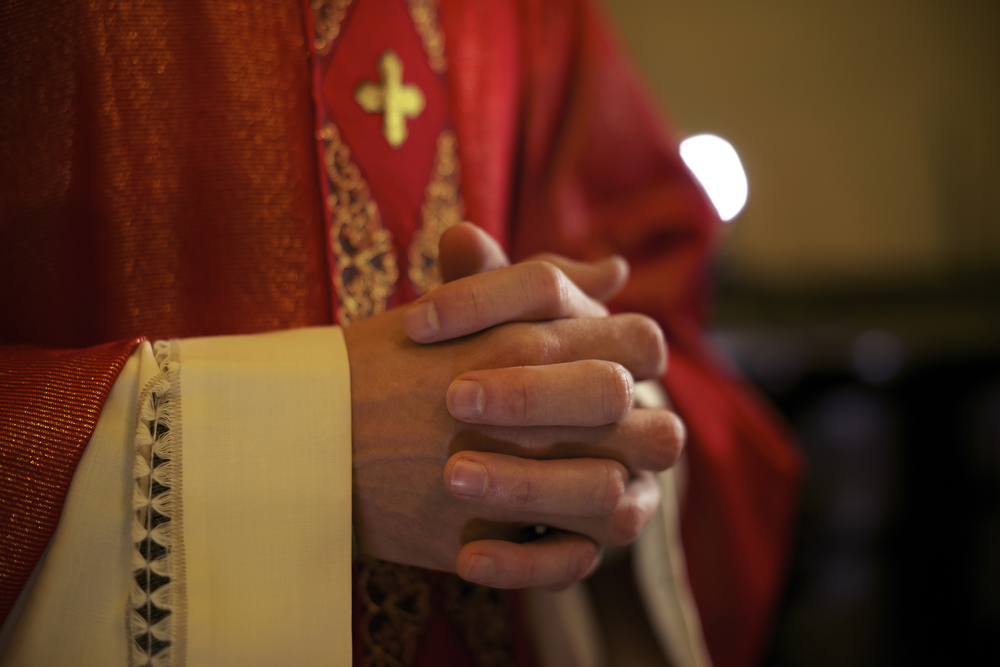Last week the Australian Attorney General released a previously redacted finding of the Australian Royal Commission into Institutional Responses to Child Sexual Abuse which handed down its final report to the Australian Parliament in December 2017.
The commission, announced by then Prime Minister Julia Gillard in 2012 began public hearings in 2013. It was the largest royal commission in Australia’s history and the most thorough public inquiry into the scandal of child sexual abuse the world has witnessed. It handled over 40,000 phone calls, over 25,000 emails, heard 8,000 stories in private sessions, and made over 2,500 referrals to authorities including police.
Of the institutions examined in which child sexual abuse occurred and was hidden in Australia, the Catholic Church was the worst. Yet the Catholic Church had argued forcefully against a royal commission, as scandals about clergy sex abuse broke open around the world. The commission was finally called following an open letter from a detective chief inspector in New South Wales, Peter Fox:
“I can testify from my own experience that the church covers up, silences victims, hinders police investigations, alerts offenders, destroys evidence and moves priests to protect the good name of the church.”
The impact of this behavior had been devastating. In the state of Victoria, police had already linked over forty suicides to sexual abuse by half a dozen brothers and priests.
Over the course of the commission a pattern emerged of known pedophile priests and brothers being moved from parish to parish, so that not only were they able to evade justice, but also were given many new opportunities to offend. An active cover-up by the Catholic Church was revealed demonstrating that the Church was vastly more concerned with protecting its reputation and its assets than protecting children or responding to victims’ needs.
The redacted section recently released pertain to the commission’s findings on the question of whether the (now) Cardinal George Pell, Australia’s most senior Catholic, knowingly moved several notorious and prolific pedophile priests from parish to parish in the 1970’s and 80’s when he was a priest, advisor to the Bishop and responsible for overseeing schools in the Archdiocese of Ballarat in the state of Victoria.
The reason for the original redaction was that Cardinal George Pell was himself under investigation for serious historical sexual assault allegations by a number of complainants. How that played out is a long story, which came to an end on April 7th when the charges against Pell were quashed on appeal by the Australian High Court, following 18 months served in prison for offenses for which a jury found him guilty and the Victorian High Court’s refusal to overturn an appeal.
Now that that has played out, we can find out the royal commission’s findings on Pell. And they are damning. Pell’s history on this issue is common knowledge within Australia; he is well known for denying, downplaying, and obfuscating victims efforts towards redress for a litany of horrific crimes against children. The commission found it implausible, if not impossible, that George Pell did not know about the offending, was deceived about it, and had little interest in it, all of which he told the commission during questioning.
Pell has at no time displayed one iota of humility. Instead he has tried all along to paint himself as the victim, by playing the role of the undeserving scapegoat for a Church under attack—with, it has to be said, a large dose of sanctimony: since his release, Pell has likened his time in prison to the suffering of Christ.
If you don’t believe Pell’s statements to the commission, which most people don’t (apart from a small but vociferous cohort of conservative backers, including a former Prime Minister)—and even, frankly, if you do believe him—the moral failing here is so profound that it is hard to know what moral register to talk about this finding in.
Certainly moving pedophile priests from location to location, enabling offenders to evade justice, and providing new opportunities to offend against hundreds of children is a human rights violation. But to say only this is not to say nearly enough about the particular moral character of the crime. That is, the language of rights is not a moral register capable of plumbing the depths of the moral terribleness of these violations. Imagine someone comforting an abuse victim by saying “I’m so sorry; it’s terrible that your rights have been violated.” Such a response is, in this context, a tone-deaf moral language.
What can it mean to find an ‘appropriate moral register’?
About George Pell some people want to know how this can happen in a Christian institution—particularly there, in the house of a religion in which care for the vulnerable and the moral notion of sin is supposedly so central. Other’s reject the premise of this line of question, pointing to certain hermetic aspects of the institutional Church which may have been contributing factors (in abuse and/or cover-up), to argue that the very point is the need for a secular morality (and law) to which religious ethics is answerable.
These are indeed difficult issues. But to labor the point that the commission’s finding is an egregious moral failure is to say what would go without saying.
And then moral philosophy has to do a further thing beyond trying to decide what is wrong, and why it is wrong; it has to try to comprehend, to grapple with, the depth and character of that wrong. Sometimes that can be done by evoking extra-moral concepts that can function in a moral light or, conversely, can illuminate the moral dimensions of something.
One such concept, used by Iris Murdoch in a kind of extra-moral way, is the concept (not wholly, but partially as a metaphor) of vision. In Murdoch’s philosophy vision is not so much what is seen, but how it is seen. Or, rather, what one sees—how one is able to comport oneself towards others, and be responsive to them “with justice and love.” This is related to her notion of moral attention. Attention is not a matter of what will be illuminated by finding out more accurate information. It involves ‘being present to’ what one sees in a way that implicates oneself in the activity of seeing and thereby implies an activity in oneself—where one is morally ‘at issue’ in the spirit in which one sees others. Attention is therefore a species of responsiveness.
The moral failure of Pell is his incapacity and unwillingness to see—not the abuse, (I believe, with the commission, that he did see that) but the failure to attend to and respond to the children who were, in a very real sense, at his mercy. Pell failed to see and respond to the horrors as horrors, and to see children in the care of the Church as human beings worthy of respect and dignity. (He failed, to put it in explicitly Christian terms, to see them in the light of God.)
In Pell, in others, in the Church, the lack of moral vision led to the neglect of human responsiveness.
I have no new contribution to make to the already vast quantities of ink spilled on why this failure occurred. But the children abandoned to these predators were simply rendered—by Pell and the Church—invisible. That kind of abandonment not only enabled the abuse but compounded its effects. As Jill Stauffer writes: “being abandoned by those who have the power to help produces a loneliness more profound than simple isolation.”
Redress is needed, but what could possibly constitute redress here? A task of the commission was to “make findings and recommendations to better protect children against sexual abuse and alleviate the impact of abuse on children when it occurs.” The final report of the commission made its recommendations on a firm ‘never again’ policy, formed around putting in place whatever measures were needed to protect children. The primary goal of the recommendations was, and is, to redress systemic failures by making child safety paramount.
Obviously action and practical outcomes are needed urgently, and most-comers agree that changes to the opacity of the Church is needed.
But we won’t really, morally comprehend this failure (Pell’s, the Church’s) without also reflecting on the failure of moral vision, of moral attention—failure to attend and to respond—to the human dignity, or (after Rai Gaita) the individual preciousness of each person.



